|
 Alastair Creelman Alastair Creelman
Course organiser
|
Alastair Creelman is an e-learning specialist at the Linnaeus University library in Kalmar. He is particularly interested in the opportunities that technology offers to open up education to all. He monitors developments and trends in educational technology and disseminates his findings through his blogs, Twitter and other social media as well as in published articles and conference contributions. He has taught in most areas of education (school, adult education, corporate training and university) and is today active in several national and international networks and organisations as well as Nordic and EU projects. |
|
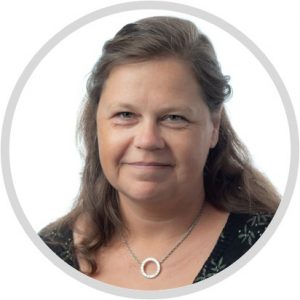 Maria Kvarnström Maria Kvarnström
Course organiser
|
Maria Kvarnström has a position as Senior Lecturer, Linköping University, Sweden. She has a background as Biomedical Laboratory Scientist and research in the medical field before working full time with education. Maria has an interest for online learning and how to manage the challenges for facilitating learners when locating education to an open online learning environment. Further she has a strong interest for PBL and is very interested in exploring how PBL can be practised in an online setting. |
|
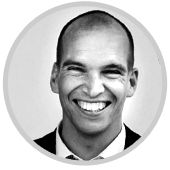 Jörg Pareigis Jörg Pareigis
Course organiser
|
Jörg Pareigis is Head of the Centre for Teaching and Learning at Karlstad University, where he is also Assistant Professor in Business Administration and researcher at CTF, Service Research Center. In addition to his role as program manager of the International Business program, he leads the externally funded WISR16 and WISR17 course development projects. The purpose of the projects is to develop open online graduate courses for professionals in the private and public sector based on strategically important research centres at Karlstad University. |
|
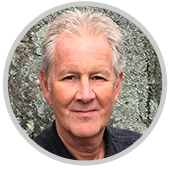 Lars Uhlin Lars Uhlin
Course organiser
|
Lars Uhlin works as an Educational Developer at Linköping university and Mälardalen university. He has a background in Nursing and has long experience of Health Care Education and Problem-based learning (PBL). For the last 20 years he has worked with educational development in different settings both on the national and international arena. He is also coordinating a national/nordic network for PBL and is a member of steering group for the swedish network for Information Technology in Higher Education (ITHU). Some of Lars’ main focus areas are professional development and educational design within a framework of problem based-, interprofessional- and online learning. |
|
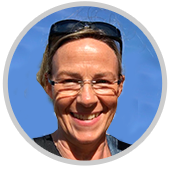 Lotta Åbjörnsson Lotta Åbjörnsson
Course organiser
|
Lotta Åbjörnsson works as an educational developer at the Division for Higher Education Development (AHU) at Lund University, Sweden. Apart from this, she is acting system manager for Zoom at Lund University – a position that has kept her very busy over recent months. During six years as part of the organiser group behind the ONL project, she has transformed from tech-adverse to tech-savvy, counting teenage kids saying “we’ll ask mom” one of her main feats. With a background in Physiotherapy and a Diploma in Physiotherapy Education she has worked as a teacher mainly in Physiotherapy programmes employing Problem Based Learning (PBL) as their method of instruction. |
|
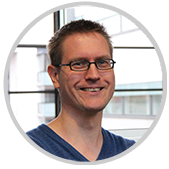 Filip Levälahti Filip Levälahti
Facilitator
|
Filip Levälahti works as an e-learning specialist at Arcada, University of applied sciences in Helsinki, Finland. His job is to support and develop the teachers’ competences in online and blended teaching and to coordinate the pedagogical infrastructure in the campus. Filip also teach a course in digital literacies for all new students at the university. He follows the expression “good online pedagogy begins with good pedagogy, period” (Paul Creasman) and is eager to find out how good pedagogy can be applied with modern technology. |
|
 Alan Soong Alan Soong
Facilitator
|
Alan Soong is Associate Director at the Centre for Development of Teaching & Learning, National University of Singapore. He teaches courses on blended learning, education grant writing and other topics such authentic learning environments and module design. His research focuses on academic development, online teaching & learning in higher education and living-learning communities. Alan served on the executive committee of the Australasian Society for Computers in Learning in Tertiary Education (ASCILITE) from 2012 till 2019. He participated in ONL171, and has since been a co-facilitator or facilitator. |
|
 Per Sandén Per Sandén
Facilitator
|
Per Sandén is an Associate Professor in Environmental Science and an educational developer at Linköping University. He has more than 20 years of experience as a facilitator of PBL groups on campus and developed and lead the undergraduate program in Environmental Science. He also developed a master program in Environmental Science. The last five years he has mostly worked as an educational developer on higher education pedagogy courses and courses for facilitators in PBL. He has also developed an advanced course for facilitators in PBL. |
|
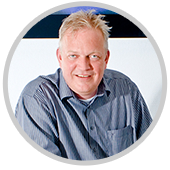 Gregor Theilmeier Gregor Theilmeier
Facilitator
|
Gregor Theilmeier is a trained anesthesiologist, translational researcher and passionate teacher. He has taught at various medical schools since 1995 and now holds a professorship at the University of Oldenburg in Germany, where he participates in the founding of a new medical school. He holds a cross appointment at the University Medical Center in Groningen. He started to teach PBL (offline) courses in the late 1990s at the medical school of the University of Münster. Ever since he has been engaged in and passionate about teaching PBL in medical contexts. He participated as a student in ONL181 and was so excited about online teaching and learning in the ONL format that he immediately returned to ONL191 to join in supporting the next generation of ONL enthusiasts as a co-facilitator, and hasn’t left since. |
|
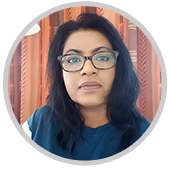 Thashmee Karunaratne Thashmee Karunaratne
Facilitator
|
Thashmee Karunaratne works at the Department of Computer and Systems Sciences (DSV), Stockholm University, as an associate professor. She also conducts teacher training and workshops on using digital tools in online education under the Center for Teacher Education (CeUL), Stockholm University. Her research interests focus on learning analytics and mining educational data, ICT for development, technology-enhanced learning and information systems. Thashmee holds a PhD in machine learning and data mining and is currently involved in teaching courses and supervising students in both classroom and online settings at DSV. In parallel with the work at CeUL and inspired by taking part in ONL171, she has returned as a co-facilitator and facilitator in the next rounds of ONL. |
|
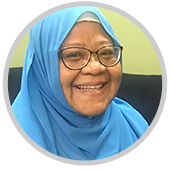 Hafizah Osman Hafizah Osman
Facilitator
|
Hafizah Osman is a learning designer and she manages the eLearning team at the NUS School of Continuing and Lifelong Education (SCALE). She works closely with faculty members involved in Continuing Education to design and develop blended and online learning modules. She comes from media background, with over two decades of cross-platform, industry experience. She participated in ONL 191, and has been a co-facilitator and facilitator since then. |
|
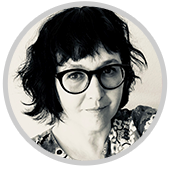 Miriam Fischer Miriam Fischer
Facilitator
|
Miriam Fischer works in the E-Learning Team of Zurich University of Applied Science Department of Social Work. She has a linguistic and paedagogical background. |
|
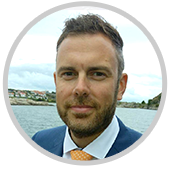 Patrik Holm Patrik Holm
Facilitator
|
Patrik Holm is a Biomedical Laboratory Scientist who mainly teaches Nursing and PE teacher students in anatomy and physiology at Karlstad university in Sweden. He has extensive experience and interest in online teaching and he is more than happy to share and discuss pedagogical approaches for both IRL and online education. He has just recently joined the Centre for Teaching and Learning at his university to help his colleagues develop their reasoning and execution of online teaching. |
|
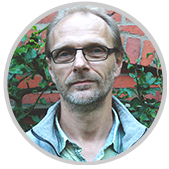 Lars Harrysson Lars Harrysson
Facilitator
|
Lars Harrysson I work at Lund University, School of Social Work, as a senior lecturer. My main focus in research is in social policy, elderly care and health care. At the moment I am involved in a project called Proactive cancer care, which involves knowledgeable people from many various branches of academy, practice and patient groups. My teaching, apart from joining the ONL team, focus on online and flipped classroom courses in social work and design sciences. I followed the ONL171 a few years ago and took the chance to co-facilitate in ONL172. Very rewarding, thus to try to support the ONL movement was not a hard decision when asked. |
|
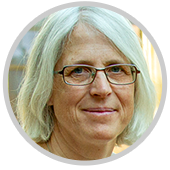 Cecilia Hellekant Cecilia Hellekant
Facilitator
|
Cecilia Hellekant works as a learning designer (ICT pedagogue) at the Centre for Teaching and Learning at Karlstad University. She has a background from the graphical industry and as IT-consultant and has worked more than 15 years as an independent graphical designer. Before joining Karlstad University, Cecilia worked as a high school teacher for 8 years, teaching graphical design, photography and web design. |
|
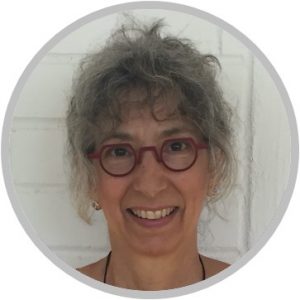 Diane Pilkinton-Pihko Diane Pilkinton-Pihko
Facilitator
|
Diane Pilkinton-Pihko is a linguist, who is teaching English to non-native speakers at Aalto University in Finland. She did her graduate work at the University of Wisconsin-Madison, and her post-graduate studies at the University of Helsinki (Finland). Her research interests include English as a lingua franca, recognition or prior learning, and content and language integrated learning. Her main work involves teaching oral and written communication to students in the fields of engineering or industrial arts. In recent years, developing and teaching courses as blended or online have become a central focus. She designed and taught her first fully online course in 2011, and since then has continued to develop herself and her courses for e-learning. |
|
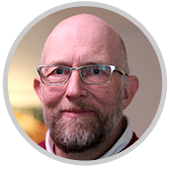 Hans Bjurgren Hans Bjurgren
Facilitator
|
My name is Hans Bjurgren and I work as a lecturer at Mälardalen University. This is my third iteration of the ONL course. |
|
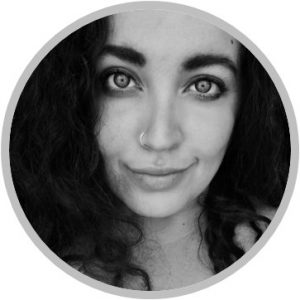 Kelly Maroon Kelly Maroon
Facilitator
|
Kelly Maroon is an intersectional educator, writer and artist. Currently a Master of Education candidate at the University of Cape Town, Kelly is involved in higher education institutional management and holds the position of Academic Head for creative media and arts school, CityVarsity Cape Town. She has participated in multiple educational research forums, projects and colloquiums and has a vested interest in radical transformation through the utilisation of a critical pedagogic praxis. Informed strongly by the ethos of education as change, Kelly focuses her practice on developing systems of support, development and enhancement that improve learning ecosystems and educator methodologies that are self-reflective and communal reflexive. Her Masters dissertation and research practice strongly considers the relationship between “what we teach” and “how we teach it” in order to better understand the hidden discursive identities that prevail in educational material and learning design. Her pedagogic goals are to assist people in identifying these often-invisible barriers, in order to improve the life-long impact of the learning experiences students and adults engage in. |
|
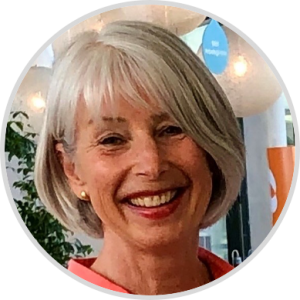 Maria Sandborgh Maria Sandborgh
Co-facilitator
|
Maria Sandborgh is an associate professor in Physiotherapy and has been teaching for more than three decades, the last decade in online courses at Mälardalen University. Health related behaviour change is the specific focus in both her teaching and research. Current research projects concern implementation research and the development of a digital tool to prevent falls among older people. She is the programme coordinator for the international Master’s programmes in Health and Welfare. Through digital means she wants to make courses available to both national and international students and to promote collaborative, lifelong learning. She is interested in developing courses that support students’ active learning and problem solving capabilities. |
|
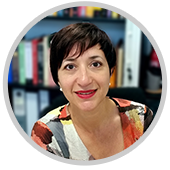 Esther Ventura-Medina Esther Ventura-Medina
Co-facilitator
|
Esther Ventura-Medina works as a lecturer at the Department of Chemical and Process Engineering at the University of Strathclyde, UK. She combines her engineering background, educational training and experience in both in face-to-face and distance learning classes. She is interested in the development of professional skills and does research focusing on investigating teamwork, problem solving skills and team autonomy by looking at the interactions in teams of students. In her own practice she uses PBL as the learning method and is increasingly aware of ‘the digital’ which has taken her to explore further using online tools for collaboration in learning. |
|
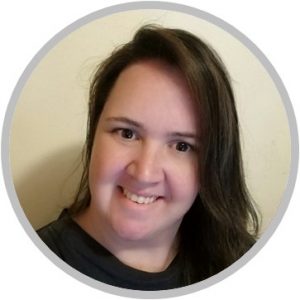 Bianca Crozier Bianca Crozier
Co-facilitator
|
Bianca Crozier works as a Learning and Development Administrator for Educor in South Africa, focusing on the training and development of staff in the new blended learning design. Her main area of expertise is in marketing, and has over 10 years lecturing experience in a face-to-face environment, moving into the online space at the beginning of 2020. Bianca was a participant in ONL202, and is no back in the role of a co-facilitator in the ONL211 iteration. |
|
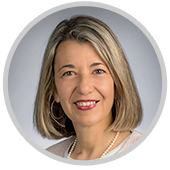 Ana Maria Barral Ana Maria Barral
Co-facilitator
|
Ana Maria Barral is an Associate Professor of Biology at National University in California. Her research focuses on microbes attached to ocean plastic, which she combines with a NSF-funded educational project to increase student engagement in STEM disciplines. She has been an early adopter of online technologies for science education, from flipped learning to the use of virtual lab activities. She was a participant in ONL191, which piqued her interest in open educational resources and the use of problem based learning in online environments. She is also passionate about equity and inclusiveness in education, particularly in STEM disciplines. |
|
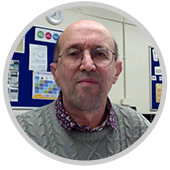 David Bevington David Bevington
Co-facilitator
|
At the present time, David Bevington is a Study Support Tutor at the Cornwall College Group. He is based at the Camborne campus. Since 1986, he has worked as a teacher-librarian at colleges and universities in both the UK, in Cornwall and London; and overseas in Papua New Guinea and Namibia. During his career, he has participated in a variety of networks and initiatives that have increased his interest and involvement in developing online learning opportunities for academics and students. David participated as an open learner in ONL192 and is enjoying incorporating the concepts he learned into his design, development and delivery of blended learning courses. He is looking forward to being a co-facilitator again in ONL211. |
|
 Sinéad Whitty Sinéad Whitty
Co-facilitator
|
Sinéad Whitty is Director of Learning at Faculty of Capacity Development, Ireland. Previously, she was Pedagogy Coordinator at the Department of Medicine in Karolinska Institutet, where she was responsible for the design, development and delivery of online, post-graduate courses. Sinéad has twenty years’ experience teaching face to face, online and blended. She is an advocate for technology that supports good teaching and learning practices. Sinéad may be addicted to ONL, having participated in six previous iterations. She is delighted to be back for ONL211. |
|
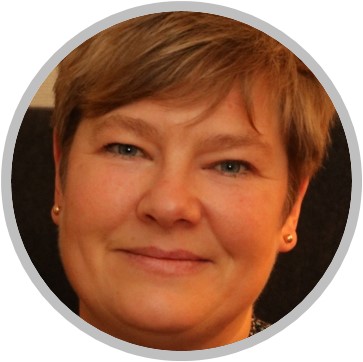 Karin Boberg Karin Boberg
Co-facilitator
|
My name is Karin Boberg and I am living in Stockholm, Sweden. My interest at work is teacher education and especially the parts engaging esthetic learning processes in different subjects and the practicum part for teacher students. My starting point was my exam and work as a music and math teacher for compulsory school which has lead me to the point where I am today. In my free time I´m a singer, dogowner and Mom. Last semester I attended ONL for the first time as a PBL group member. This experience was so interesting I just had to join again and become a Co-facilitator. I´m really looking forward to join and follow a new PBL group and see what interesting and fun activities we will share together. |
|
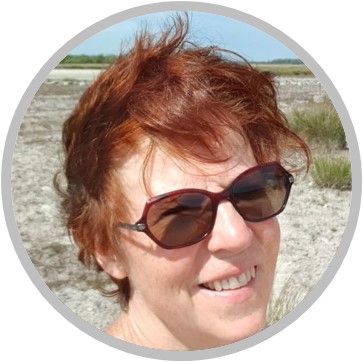 Lena Örnberg Lena Örnberg
Co-facilitator
|
Lena Örnberg is a project leader at Lund University, presently in charge of a project on object-based learning, another on teaching in the multicultural classroom and finally one on language support to students. She has a background in Economic history, but she has not been teaching for some years. Participatory meeting methods is one of her passions, and since March last years she has developed her skills in making online meetings more fun and creative. ONL202 was a shove for her to start blogging at Lund University. |
|
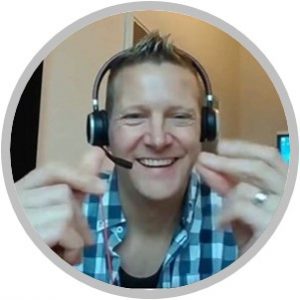 Jonas Bäckelin Jonas Bäckelin
Co-facilitator
|
Jonas Bäckelin is Technology Integration Specialist at the City of Stockholm Education Administration with focus on digitalisation implementation and processes. He graduated in ONL172, was co-facilitator in ONL181 and studied Collaborative Learning in Digital Learning Environments. Jonas is volunteer coordinator for Edcamp Sweden (#EdCampSE), which organizes free participant-driven conferences within educational technology (#EdTech). His master thesis in didactics at Stockholm University focuses on Teachers Open Online Learning for Professional Development. |
|
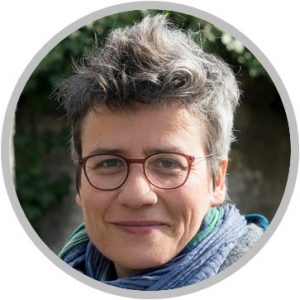 Nathalie Baumann Nathalie Baumann
Co-facilitator
|
Nathalie Baumann I am an urban ecologist, researcher and senior lecturer at Zurich University of Applied Sciences (Institute of Natural Resource Sciences/Research Group Green Space Development and Urban Ecosystem Design), who is specialized in promoting biodiversity in urban ecosystems. Her research and projects focus on interface between ecology, biodiversity, planning and human beings – all is embedded in an ecosystem approach in order to create biodiverse habitats. I was participant in ONL191 (Spring 2019) and now I come back and will start as an co-facilitator. My teaching, Bachelor level and further education, focus more and more on online classroom courses and all its possibilities to make diverse and changing ways of learning. Therefore it was not hard to decide to come back to ONL and be part of this network and platform – exchanging my experiences and learn new ways / ideas of collaborative online learning. |
|
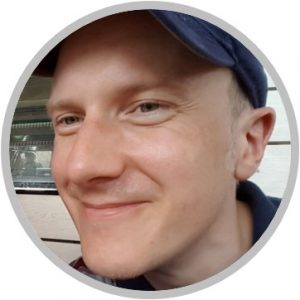 John Weston John Weston
Co-facilitator
|
John Weston John is a University Teacher of English at the Aalto Language Centre. John has a Ph.D. in the sociolinguistics of academic discourse, and he continues to research the use of English across the arts, humanities, and sciences. John is also qualified as a physics teacher in the UK and is interested in the popularization of science. In addition to coaching technical and artistic students in academic writing at Aalto, John is currently developing new online teaching methods, and researching the use of creative writing and speaking for academic purposes. He produces interview podcasts for the New Books Network and is currently developing a new series about life and work in academia. |
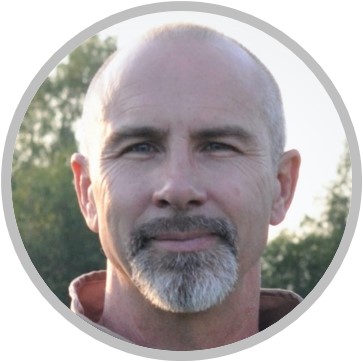 Fredrik Backlund Fredrik Backlund
Co-facilitator
|
Fredrik Backlund participated in ONL201, and is this time a co-facilitator. He is an associate professor at Luleå University of Technology (LTU), in quality technology and management. During the years, Fredrik have become more engaged in educational development, and is from 2019 a member of the university’s Centre for Educational Development. Fredrik’s main focus areas are problem-based and project-oriented learning, and the integration of program and course development. The spare-time is devoted to the family, and the roles as instructor and developer in different kinds of associations. Overall, both professional and private life is about developing people. |
|
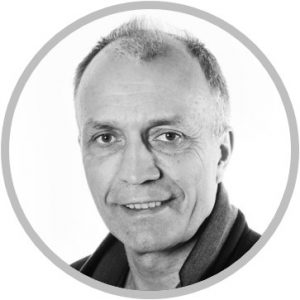 Erik Månsson Erik Månsson
Co-facilitator
|
I am a Swedish citizen who has been an expat in a number of countries since 1993. Currently I am based in Germany, since I came to Frankfurt in 1998 to help build up the European Central Bank. During that period, I was programme manager for the Single Euro Payments Area (SEPA) introducing BIC and IBAN account numbers and harmonizing European payment systems. Since beginning of 2019 I have a new role at Karlstad University in Sweden teaching leadership and project management remotely.
In autumn 2020 I participated for the first time to the ONL training and found that it was very useful and highly adapted to my new job for online education. ONL helped me to continually improve and develop my own teaching practice with the ability to test and put into practice along with my own personal learning. The PBL group served as a global peer group learning community to exchange experiences, discover new perspectives and challenge each other in a positive way.
My ambition for joining ONL211 as a co-facilitator is to take my learning to the next level in a co-creative process with other inspiring and motivated educators. |
|
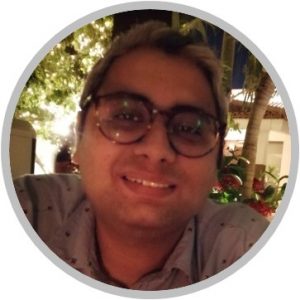 Raheel Lakhani Raheel Lakhani
Co-facilitator
|
Raheel Lakhani is an Educational Development and Digital Learning professional. He currently serves as an Assistant Director, Research and Faculty Development at a private university in Pakistan. He was heading the Digital Publishing department at Oxford University Press Pakistan. He has also served as an Educational Technologist at The Aga Khan University, Network of Blended and Digital Learning. He is a recipient of High Honours in Master of Education from The Aga Khan University – Institute for Educational Development. He participated as a digital innovator in an academic scholarship program ‘Social Innovation in a Digital Context’ funded by the Swedish Institute, where he explored the development of a digital storytelling approach for promotion of pluralistic and creative expression. He holds an MA in Technology and Social Change from Lunds Universitet by the same program. His interests include eLearning pedagogy, learner autonomy, pluralism education and visual narratives. |
|
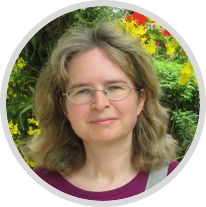 Judit Hahn Judit Hahn
Co-facilitator
|
Judit Hahn works as a senior university lecturer of English at the Department of Language and Communication Studies of the University of Jyväskylä in Finland. She teaches courses in linguistics and discourse studies for pre-service language teachers and language experts of English. Judit completed ONL181 as an open learner and enjoyed it so much that she returns to the course as a co-facilitator. She finds international online collaborative learning a highly rewarding and useful experience. Virtual exchange in higher education is in the centre of her interest, both in teaching and in research. She has arranged online collaborative educational projects for her students with universities from Poland, the Czech Republic, Spain, the Netherlands, Japan and Singapore. |
|
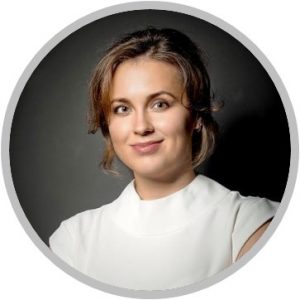 Oksana Chernysh Oksana Chernysh
Co-facilitator
|
Oksana Chernysh, a PhD Lecturer, Associate Professor at the Department of Theoretical and Applied Linguistics, Zhytomyr Polytechnic State University (Ukraine)
Research interests: Distance Education, E-learning, Lexicography, Computer and Corpus Linguistics, Media linguistics, Genre Studies.
Motto: Live and Learn?
|
|
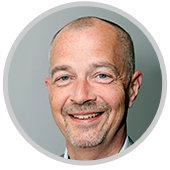 Tore Nilsson, Tore Nilsson,
Contributor
|
Tore Nilsson is a senior lecturer in language education, Stockholm University. With a background in English linguistics he now works with foreign language teacher education, in-service training of language teachers and research in language education with a special interest in pre-service teacher cognition and professional devlopment. He has a keen interest in pedagogical development issues. In 2017 he co-ordinated a year-long project at his department with a focus on furthering digital literacy and the use of digital tools in language teacher education. During 2018 he is the pedagogical facilitator for the implementation of a new LMS at his department. Tore participated in ONL171, and has since been a co-facilitator or facilitator. |
|
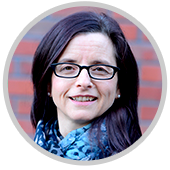 Alexandra Wirth Alexandra Wirth
Contributor
|
Alexandra Wirth I work at the Careum Foundation, Department Educational Development and Kalaidos University of Applied Sciences Switzerland in Zurich, Department of Health Science. In Careum Educational Development I work as pedagogical researcher in the main areas of further development of curricula for problem-based learning (PBL) as well as teacher training PBL, interprofessionality and health literacy. At Kalaidos University I work as junior researcher in a EU project H2020 about mental health and wellbeing of adolescent young carers. I was an open learner in ONL 181 and was completely enthusiastic, and am very happy to be a co-facilitator again on ONL211. |
|
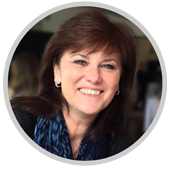 Anne Whaits Anne Whaits
Contributor
|
Anne Whaits joined the executive team at Educor in May 2018 as Chief Academic Officer after having spent most of 2017 with Academic Partnerships – an American Online Programme Manager (OPM) Business in partnership with public universities in South Africa to take a portfolio of their degree programmes 100% online. Having facilitated several iterations of ONL before, Anne’ s current action research interests include new learning ecosystems with particular interest in developing online facilitation skills amongst academics and digital literacies amongst students. Educor has three distance education brands and five contact delivery brands across South Africa with the number of blended and online offerings growing. |
|
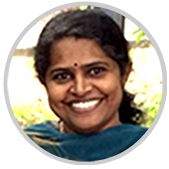 Kiruthika Ragupathi Kiruthika Ragupathi
Contributor
|
Kiruthika Ragupathi is an academic developer with the Centre for Development of Teaching and Learning (CDTL) at the National University of Singapore (NUS). She has a background in Engineering and has worked with academic development since 1997. Her research interests are in analyzing pedagogical issues surrounding the integration of educational technologies into teaching and learning; understanding the learning processes and outcomes for learners engaged in technology-supported tasks; and in tracking and supporting learning in interactive learning environments. Her current research focuses on using student evaluation of teaching to enhance teaching practices and policies; in optimizing instructor interventions in online discussion forums to enhance the student learning experience; and also in studying the impact of gradeless learning on student motivation. Kiruthika took the ONL171 journey, and has since then been a co-facilitator or facilitator. |
|
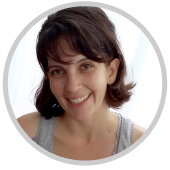 Danielle dos Santos Danielle dos Santos
Contributor
|
Danielle dos Santos is a pharmacist, Professor at the Federal University of Rio de Janeiro Campus-Macaé, Brazil and currently working as a scientist at the University of Oldenburg, Germany. She has a background in public health and health related quality of life. She is involved in projects related to health education, outreach projects, health promotion and recently discovered her interest in online learning and network learning. She was an open learner in ONL181 and is still trying to find new ways to effectively include these new concepts in her daily work. |
|
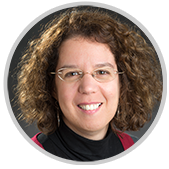 Gizeh Perez-Tenorio Gizeh Perez-Tenorio
Contributor
|
Gizeh Perez Tenorio loves research and considers herself a passionate educator. For many years she has mentored students at Linköping University where she also practiced Problem Based Learning as part of the PhD program: “PBL, for me, was hard at the beginning but brought a lifelong reward at the end”. During ONL162 she discovered the power of PBL online and became fascinated by the course design and pedagogy. In the future she would like to understand more about what makes a successful collaboration in virtual teams, to design pedagogical material for digital courses and to learn MOOC design. |
|